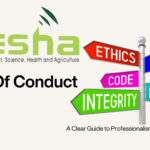Njeri Murigi (healthjournalist3@gmail.com)
That many African countries have not recommended COVID-19 vaccines for pregnant women is proving to be a time bomb.
A new study now recommends prioritizing vaccinating of pregnant women in Africa against the coronavirus.
The study dubbed “Severe acute respiratory syndrome Coronavirus 2 (SARS-CoV-2) Infection and Pregnancy in Sub-Saharan Africa” indicates that pregnancy puts women at higher risk of severe medical complications or death from COVID-19.
“Pregnancy is natural immunosuppression, as the body is struggling to accommodate two people. The body needs to build a lot of antibodies to fight microbe infections because of this. That is why vaccination during pregnancy is important because it helps build antibodies that can help protect both the mother and the baby,” Prof Jean Nachega, the lead researcher for this study, said during the release of the study findings to journalists from Kenya, Uganda, Zambia, and Zimbabwe.
The study analysed health records from 1,315 women treated at hospitals in six countries in the sub-Saharan Africa between March 2020 and March 2021. Roughly one third of the sampled women were pregnant and had tested positive for the coronavirus. Another third of the women were pregnant, but had tested negative. The remainder were not pregnant, but had tested positive for COVID-19.
The researchers tested how pregnancy, infection with the coronavirus and conditions such as HIV, TB, malaria and sickle cell anemia affected a woman’s likelihood of severe disease or death.
The findings were grim. Pregnant women who were hospitalised in sub-Saharan Africa were five times more likely to die in the hospital if they tested positive for the coronavirus. Being pregnant doubled the odds that a woman admitted to a hospital with COVID-19 would die.
According to the study, though COVID-19 vaccines have been found to be safe and effective during pregnancy, only 13 of the sub-Saharan Africa countries currently recommend COVID-19 vaccination for some or all pregnant women. Globally, about 110 countries have recommended vaccination for this category.
“Most African governments are yet to start vaccinating pregnant women on basis that the vaccine could harm them, or their fetuses and babies, yet it has been extensively demonstrated that that’s not the case,” said Prof Nachega.
According to the study, despite the fact that women of childbearing age need to be vaccinated against COVID-19 during or even before pregnancy, high rates of vaccine hesitancy in sub-Saharan Africa is a big challenge. According to the report, only about 19 per cent of women intend to get the vaccine.
“The most important implication of this study is to advocate for COVID vaccination in women of childbearing age. We decided to conduct this research because few data are available on COVID-19 outcomes among pregnant women in sub-Saharan Africa (SSA), where high-risk comorbidities are prevalent. We investigated the impact of pregnancy on SARS-CoV-2 infection and of SARS-CoV-2 infection on pregnancy to generate evidence for health policy and clinical practice,” he revealed.
The Centers for Disease Control and Prevention (CDC) recommends Covid-19 jabs for everyone aged at least six months, including pregnant and breastfeeding women, those trying to get pregnant, or might become pregnant in the future. It also recommends boosters for the same groups if eligible.
More evidence continues to show that COVID-19 vaccination before and during pregnancy is safe, effective, and beneficial to both mother and child. The benefits of receiving a COVID-19 jab therefore far much outweigh any potential risks of vaccination during pregnancy.
Pfizer-BioNTech or Moderna (mRNA COVID-19 vaccines) are preferred over the J&J/Janssen ones for primary and booster vaccination. The J&J/Janssen vaccine may, however be considered in some instances, according to researchers.







